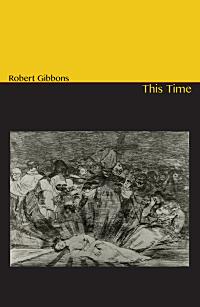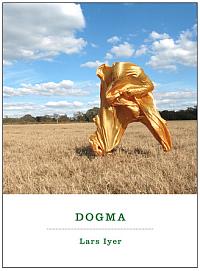|

Tree
1955
Harold Town
b. June 13, 1924
_______________________
The Mores
John Clare
(....)
Now this sweet vision of my boyish hours
Free as spring clouds and wild as summer flowers
Is faded all--a hope that blossomed free
And hath been once no more shall ever be
Inclosure came and trampled on the grave
Of labours rights and left the poor a slave
And memorys pride ere want to wealth did bow
Is both the shadow and the substance now
(....)
But now alls fled and flats of many a dye
That seemed to lengthen with the following eye
Moors loosing from the sight far smooth and blea
Where swopt the plover in its pleasure free
Are vanished now with commons wild and gay
As poets visions of lifes early day
Mulberry bushes where the boy would run
To fill his hands with fruits are grubbed and done
And hedgrow briars--flower lovers overjoyed
Came and got flower pots--these are all destroyed
And sky bound mores in mangled garbs are left
Like mighty giants of their limbs bereft
Fence now meets fence in owners little bounds
Of field and meadow large as garden grounds
In little parcels little minds to please
(....)
Each little tyrant with his little sign
Shows where man claims earth glows no more divine
On paths to freedom and to childhood dear
A board sticks up to notice 'no road here'
And on the tree with ivy overhung
The hated sign by vulgar taste is hung
As tho the very birds should learn to know
When they go there they must no further go
This was the poor scared freedom bade good bye
And much the[y] feel it in the smothered sigh
And birds and trees and flowers without a name
All sighed when lawless laws enclosure came
And dreams of plunder in such rebel schemes
Have found too truly that they were but dreams
...(more)
.....................................................
John Clare, the poet of the environmental crisis – 200 years ago
George Monbiot
(....)
As Jonathan Bate records in his magnificent biography, there were several possible causes of the "madness" that had Clare removed to an asylum in 1837: bipolar disorder, a blow to the head, malaria (then a common complaint on the edge of the fens). But it seems to me that a contributing factor must have been the loss of almost all he knew and loved. His work is a remarkable document of life before and after social and environmental collapse, and the anomie that resulted.
What Clare suffered was the fate of indigenous peoples torn from their land and belonging everywhere. His identity crisis, descent into mental agony and alcohol abuse, are familiar blights in reservations and outback shanties the world over. His loss was surely enough to drive almost anyone mad; our loss surely enough to drive us all a little mad.
For while economic rationalisation and growth have helped to deliver us from a remarkable range of ills, they have also torn us from our moorings, atomised and alienated us, sent us out, each in his different way, to seek our own identities. We have gained unimagined freedoms, we have lost unimagined freedoms – a paradox Clare explores in his wonderful poem The Fallen Elm. Our environmental crisis could be said to have begun with the enclosures. The current era of greed, privatisation and the seizure of public assets was foreshadowed by them: they prepared the soil for these toxic crops....(more)
_______________________
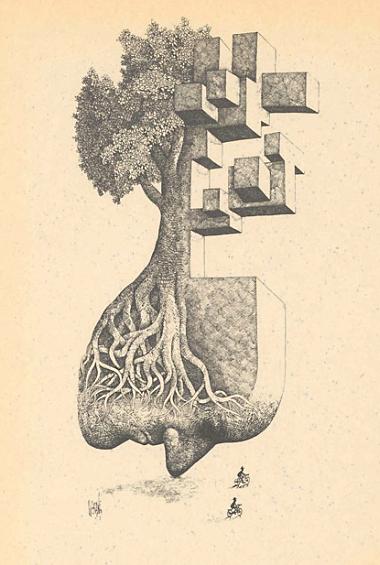
Rogelio Naranjo
benhayattayken
_______________________
Versailles Goes Global
Capitalism’s Boundless War
Robert Hunziker
The streets of the world’s capital cities are war zones of hopelessness, but as people gather together, this despair transforms into a fierce determination, underlain by great expectations, like in 1848, when the only European-wide collapse of the status quo occurred in the Revolutions of 1848 also popularly known at the time as: The Spring of Nations. Similar to that challenge of authority over 150 years ago, as of today, an epic battle, an undeclared war, rages around the world, erupting every week in another capital city, challenging the legitimacy and credibility of capitalism.
(....)
This grandiose worldwide dissatisfaction with the status quo is not business as usual like a normal business cycle, which ends with renewal of prosperity. No, by all appearances, this is a deep-seated disintegration of economic relationships, which have existed in a delicate balance of competing interests for 200 years.
Every war has a catalyst, and the capitalists themselves have brought on this one by depriving the bourgeoisie and proletariat a fair share of the bounty on a worldwide basis in places like the United States, Indonesia, South Korea, Chile, and throughout Europe. Now that capitalism is universal, the population of the world sees its effects in unison rather than individually by nation-state, but the problem is not capitalism per se. The problem is abuse of the capitalist system by capitalists. What is the evidence of this abuse?...(more)
_______________________
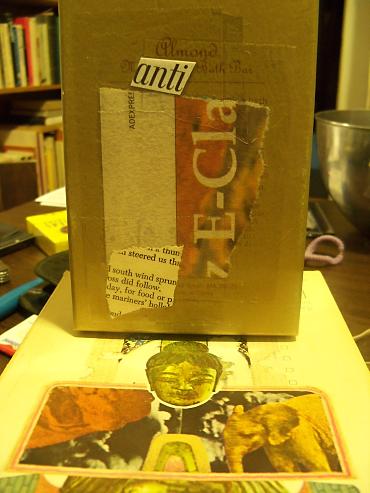
pansemic playhouse 364 002
photo by jim leftwich
TEXTIMAGEPOEM
_______________________
An Unquenchable Gaiety of Mind
On visits to Cambridge University late in life, Jorge Luis Borges offered revealing last thoughts about his reading and writing
George Watson
My recollections of his talks, taken from notes recently unearthed among my papers, suggest a refreshing inde- pendence of mind rather than willful iconoclasm, along with what would have looked to our grandparents like an abiding passion for an entirely familiar canon of English: Shakespeare and the King James Version of the Bible, which his English grandmother used to read, along with Robert Louis Stevenson and G. K. Chesterton. J. R. R. Tolkien’s Lord of the Rings meant nothing to him. He was a skeptic of religion but not of the literary canon. Or, as he once put it in heartfelt certainty, we must never “destroy by human reasoning the faith that art requires of us.” No fantasist, after all, can afford to doubt reality or the knowledge of reality. “The world, unfortunately, is real,” as he once remarked, “and I, unfortunately, am Borges.”
What follow are the notes I made. They are verbatim, in answer to questions put by a large audience (on one occasion) and at one or two small gatherings. I have not recorded the dates, but they are all from the 1980s, which is why I presume to call them last words.
(....)
I know many languages, including Latin but not Greek. Old English I love passionately—Anglo-Saxon—and it was through Old English I learnt Old Norse. It is by knowing a language that you come to know poems. You come to know them physically, and unless you know a poem physically you do not know it at all.
Learning languages is a physical pleasure. Words are somehow personal and uncanny. My best story is “The Book of Sand,” with no beginning or end. We do not read to discover the end. After all, people reread stories, so it is impossible to believe they read to discover how they will end.
...(more)
_______________________
Project Gutenberg Self Publishing Portal
From Project Gutenberg, the first producer of free eBooks, now comes the free Author's Community Cloud Library, a social network Self Publishing Portal. This portal allows authors to share their works with our readers as well as allows readers to provide comments, reviews and feedback to the authors. Every eBooks has its own detail page with ratings and Wall for displaying reader comment.
There is no charge for using this service and registration is not required for reading or downloading the publications or comments. However, registration is required to upload a book or post a comment. All postings are monitored, and offensive or indecent postings will not be approved.
_______________________
Remediation, Or How Digitisation Is Changing The Meaning Of Texts (part 1)
Jacob Halford
The Order Of Books, Or How Digitisation Is Changing The Meaning Of Texts (part 2)
Jacob Halford
Early Modern Dialogues
An Exploration of Debate, Democracy and Digitisation
_______________________
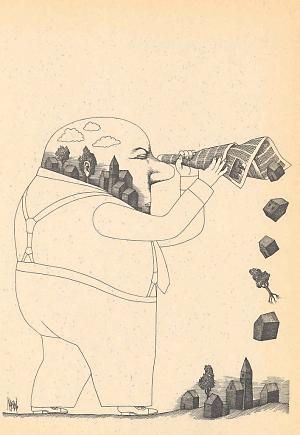
Rogelio Naranjo
_______________________
UbuWeb Top Ten July 2012
Selected by Bryan Waterman
.....................................................
Memorabilia. Collecting sounds with...Kenneth Goldsmith. Part I
An in-depth, sonically illustrated narrative of my collecting habits and what drives UbuWeb
_______________________
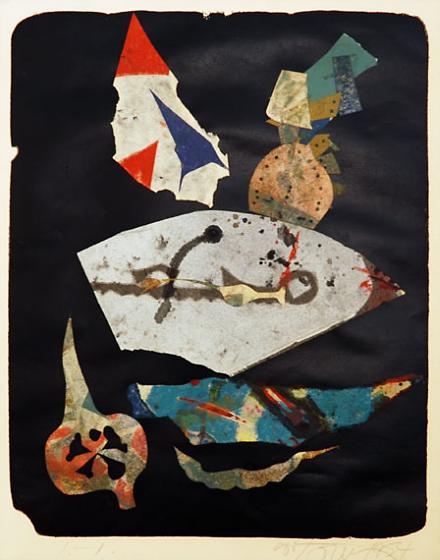
Mummers
Harold Town
1954
_______________________
Summer Images
John Clare
b. July 13, 1793
(....)
I love to walk the fields, they are to me
A legacy no evil can destroy;
They, like a spell, set every rapture free
That cheer'd me when a boy.
Play—pastime—all Time's blotting pen conceal'd,
Comes like a new-born joy,
To greet me in the field.
For Nature's objects ever harmonize
With emulous Taste, that vulgar deed annoys;
Which loves in pensive moods to sympathize,
And meet vibrating joys
O'er Nature's pleasing things; nor slighting, deems
Pastimes, the Muse employs,
Vain and obtrusive themes.
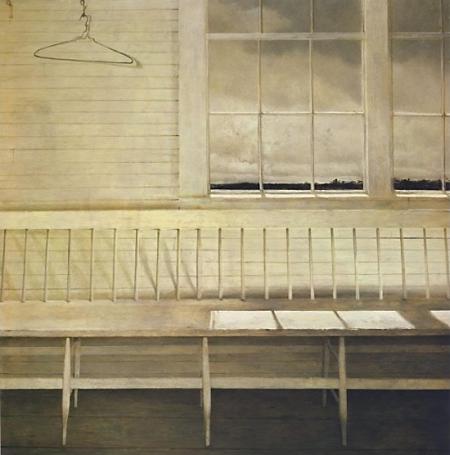
Off at Sea
1972
Andrew Wyeth
b. July 12, 1917
_______________________
The Atrophy of Private LIfe
Jennifer Moxley
In the heavy fashion magazines strewn here and there around the house the photos of objects and people mouth the word “money,” but you, assuming no one wants you anymore, mishear the message as “meaning.” Arousal follows. The lives of the rich are so fabulous! The destruction of the poetical lies heavily on their hands, as on their swollen notion that we are always watching. There is nothing behind the mask. Nothing suffocating under its pressure, no human essence trying to get out.
Awareness, always awareness. Don’t you see how these elaborate masks are turning you into a zombie? The private life is not for the eye but for the endless interior. It is trying to push all this crap aside and find the missing line. Nobody, least of all the future, cares about the outcome of this quest.
It is easy to lose, through meddling or neglect, an entire aspect of existence. And sometimes, to cultivate a single new thought, you need not only silence but an entirely new life.
from Jennifer Moxley, The Line
Jennifer Moxley at the Poetry Foundation and EPC
Find the missing line
(PoemTalk #55)
Jennifer Moxley, "The Atrophy of Private Life"
_______________________

Reflection of ceiling in puddle,
Michigan Theatre
(now parking garage),
Detroit 2010
The Party's Over
Lisa Kereszi
via
_______________________
Revolutionary Time
Spurious
The Royal Observatory, high on the hill. This is where the first international terrorist incident took place, W. says, reading from a plaque. A young French anarchist attempted to blow up the Observatory, to blow up Greenwich Mean Time ...
To change time, the order of time: isn’t that the aim of any revolution?, W. says. We have to recover the dimension of possibility. The dimension of the infinite!
Time touched by eternity: he’s always found Kierkegaard’s phrase very moving, W. says. There is the time that passes, Kierkegaard argues - this instant, then that, which we merely endure, which merely carries us along. And then there is that time touched by eternity, Kierkegaard says, which allows past, present and future assume their true role in our lives as phases of development. Once time has touched eternity, we no longer simply persist in time, but deepen and grow. We come to exist temporally, living towards a future that we earn by our deepening, earn by our growth: that's what Kierkegaard argues.
(....)
Sometimes, W. longs for a great explosion in the sky. For a nearby star to burst across the heavens. For a comet's head, blazing towards us. Why is it easier to imagine the end of the world than to imagine the end of capitalism?...(more)
_______________________
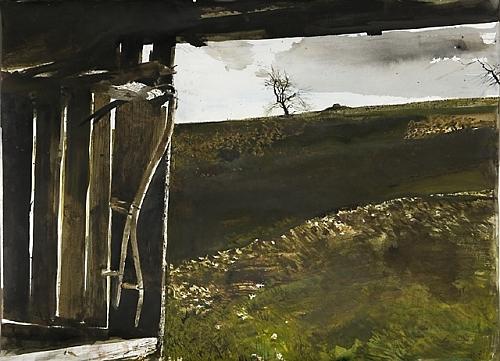
Wylie's Scythe
Andrew Wyeth
1986
_______________________
The last crusade
Kenan Malik
(....)
Not only are "Christian values" and "Islamic values" more complex and with a more convoluted history than contemporary narratives suggest, so too is the relationship between Enlightenment ideas and religious belief. There were, in fact, as the historian Jonathan Israel has pointed out, two Enlightenments. The mainstream Enlightenment of Kant, Locke, Voltaire and Hume is the one of which we know and which provides the public face of the movement. But it was the Radical Enlightenment, shaped by lesser-known figures such as d'Holbach, Diderot, Condorcet and, in particular, Spinoza, that provided the Enlightenment's heart and soul.
(....)
The reason to challenge the crass alarmism about the decline of Christianity is not simply to lay to rest the myths about the Christian tradition. It is also because that alarmism is itself undermining the very values – tolerance, equal treatment, universal rights – for the defence of which we supposedly need a Christian Europe. The erosion of Christianity will not necessarily lead to the erosion of such values. The crass defence of Christendom against the "barbarian hordes" may well do. ...(more)
_______________________
His Love of Semicolons
Amit Majmudar
The comma is comely, the period, peerless,
but stack them one atop
the other, and I am in love; what I love
is the end that refuses to stop,
the promise that something will come in a moment
though the saying seem all said;
a grammatical afterlife, fullness that spills
past the fullstop, not so much dead
as taking a breather, at worst, stunned;
the sentence regroups and restarts,
its notation bespeaking momentum, its silence
dividing the beats of a heart.
Umbrella
(“A Journal of Poetry and Kindred Prose”)
Summer-Fall 2012
Amit Majmudar at the Poetry Foundation

The Hour Of Twilight
William Gordon Shields
Pictorial Photography in America 1921
Project Gutenberg
_______________________
Everybody's Tree
David Ferry
threepenny review
(....)
Over beyond in the night there was a houseless
Wooded lot next door to Bessie’s house;
Because of the houselessness and because of the trees,
I could think of it as a forest like the forest
In Hawthorne’s great short story Young Goodman Brown,
And from out that window looking out at the back
I could faintly see, or thought I could see,
Maybe once or twice, by a flash, a raining gust
Of the light of lightning, the waving tops of trees
In that empty wooded lot beyond Bessie’s house.
The houseless tiny lot seemed like a forest
And in the forest there was a certain tree
Which all of us children somehow knew was known
As Everybody’s Tree, so it was called,
Though nobody knew who it was who gave it its name;
...(more)
_______________________
metaphysics of paper 3
Roger Gathman
(....)
... The transformation of texts into treasures, and the subsequent influence of rot upon the transmission of those texts – which are retrieved and patched together – is a small revenge extracted by the little tradition, of the folk, on the great tradition, where abstraction joins with power.
When matter emerges clumsily and definitively in the world of letters, it does so through certain favored modes and occasions: the fragment, the ruin, the lost. These expose the word’s entanglement in matter, the limit to its flights, the impossibility of the heaven of pure sense. The gnostic attitude begins with a deep appreciation of these seemingly accidental events. It is a revelation, one never to be gotten over by the prepared soul, that the text can be lost or patched, the copyist can mistake or the copy be blotted, the letter lost, the word abandoned or interrupted. These events, in the great tradition, the mainstream, are waved away as contingencies, but the gnostic draws a different metaphysical conclusion, which is that these events are inherent to the pact between sound and sense, paper and text, and that the entanglement between matter and letter, or the code and the message, ruins all the tower of Babel schemes for the one true metalanguage. This metaphysical conclusion, in modernity, strengthens the margins against the center, or the mainstream. The gnostic attitude flows into Marx’s dialectical materialism, which exploits the power of the negation of the negation, and into like enterprises that bet on the return of the repressed. It connects Marx with Michelet’s witch, who, in the dark night of the feudal claim to have represented the totality of the order of creation in the social order, registers her protest by reciting the Lord’s Prayer backwards, in following the “grand principe satanique que tout doit se faire ą rebours, exactement ą l’envers de ce que fait le monde sacré” – “great satanic principle that everthing must be done backwards, exactly the reverse of what the sacred world does.” More commonly, the gnostic appears, in modernity, in the guise of the clerk, bureaucrat, functionary who becomes aware, to a greater or lesser degree, of his non-productive function in the sphere of circulation. He becomes a metaphysical whistle-blower – a Kafka, a Pessoa, a Bartleby.
...(more)
metaphysics of paper 1 2
_______________________
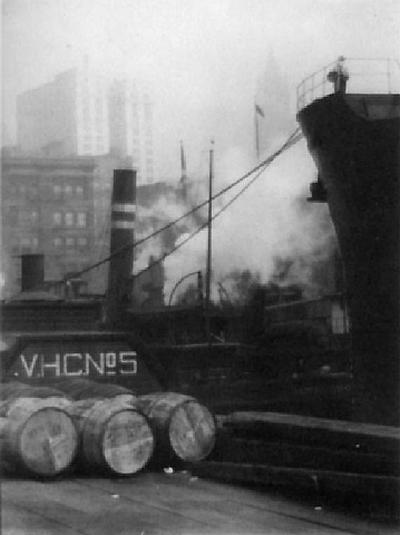
Lower Manhattan
1910
William Gordon Shields
1883 - 1947
_______________________
Apologies to Mexico
The Drug Trade and GNP (Gross National Pain)
Rebecca Solnit
(....)
I don’t know why my country seems to produce so much misery and so much desire to cover it up under a haze of drugs, but I can imagine a million reasons. A lot of us just never put down roots or adapted to a society that’s changing fast under us or got downsized or evicted or foreclosed or rejected or just move around a lot. This country is a place where so many people don’t have a place, literally or psychologically. When you don’t have anywhere to go with your troubles, you can conveniently go nowhere -- into, that is, the limbo of drugs and the dead-end that represents.
But there’s something else front and center to our particular brand of misery. We are a nation of miserable optimists. We believe everything is possible and if you don’t have it all, from the perfect body to profound wealth, the fault is yours. When people suffer in this country -- from, say, foreclosures and bankruptcies due to the destruction of our economy by the forces of greed -- the shame is overwhelming. It’s seen as a personal failure, not the failure of our institutions. Taking drugs to numb your shame also keeps you from connecting the dots and opposing what’s taken you down.
So when you’re miserable here, you’re miserable twice: once because you actually lost your home/job/savings/spouse/girlish figure and all over again because it’s not supposed to be like that (and maybe thrice because our mainstream society doesn’t suggest any possibility of changing the circumstances that produced your misery or even how arbitrary those circumstances are). I suspect that all those drugs are particularly about numbing a deep American sense of failure or of smashed expectations.
Really, when you think of the rise of crack cocaine during the Reagan era, wasn’t it an exact corollary to the fall of African-American opportunity and the disintegration of the social safety net? The government produced failure and insecurity, and crack buffered the results (and proved a boon to a burgeoning prison-industrial complex). Likewise, the drug-taking that exploded in the 1960s helped undermine the radical movements of that era. Drugs aren’t a goad to action, but a deadening alternative to it. Maybe all those zombies everywhere in popular culture nowadays are trying to say something about that.
Here in the United States, there’s no room for sadness, but there are plenty of drugs for it, and now when people feel sad, even many doctors think they should take drugs. We undergo losses and ordeals and live in circumstances that would make any sane person sad, and then we say: the fault was yours and if you feel sad, you’re crazy or sick and should be medicated. Of course, now ever more Americans are addicted to prescription drugs, and there’s always the old anesthetic of choice, alcohol, but there is one difference: the economics of those substances are not causing mass decapitations in Mexico....(more)
_______________________
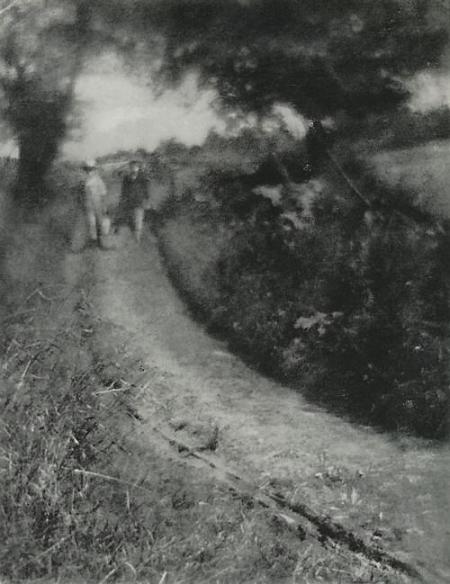
A New England Lane
William Gordon Shields
1921
_______________________
three poems
Richard Hoffman
Patrimony
(....)
2.
A son might hold a father
to account for certain
memories, for certain
understandings, to desire
anyone, or anything at all.
A lot can go wrong, so
he pretends to know
what a man and love is.
He may have to help himself
to his father's shame
for a time to understand.
Sometimes a long time.
And then, even if he turns,
if he rises and bathes
and dresses and shaves
and takes up his life at last,
he cannot say if that is
or is not forgiveness.
The much he must learn
becomes his life. There is
no might have been, no
otherwise or if only, only
the ground under his feet.
Elsewhere men continue
falling from the sky.
...(more)
_______________________

Polperro Cornwall
1920
Cecil Bostock
(1884–1939) via (OvO)
_______________________
Why links matter: Linking is the lifeblood of the web
Mathew Ingram
_______________________
The New Prohibition: A Look at the Copyright Wars Through the Lens of Alcohol Prohibition
Donald P. Harris
Social Science Research Network
This Article argues that legislators, commentators, and the copyright industry must entertain laws that embrace filesharing, and seek other ways to incentivize artists and other creators. The Article traces Alcohol Prohibition of the 1920s and 1930s as an historical example of laws that were inconsistent with the vast majority of society’s morals and norms. Looking back, one can see many similarities between the Alcohol and Filesharing Prohibitions. The Article suggests, then, that lessons learned from the failed “noble experiment” of Alcohol Prohibition should be applied to the current filesharing controversy. Doing so, the Article advocates legalizing certain noncommercial filesharing. A scheme along these lines will comport with societal norms and will force new business models to replace outdated and ineffective business models.
_______________________
Not to sound defeatist, but maybe the one-percent has already won this thing. With the poor now cheering for the rich, the plutocrats’ wildest and most ambitious fantasies have been realized. Not only have the rich succeeded in convincing workers to root against labor unions—the one and only institution dedicated to their welfare—they’ve convinced them to fight for the interests of the wealthy rather than the interests of their own tribe.
Holy Mother of Jesus, this makes no sense. And it’s not simply politics. It transcends political ideology and voter booth privacy. Rooting for the rich is crazy. It’s not only illogical and impractical, it’s unnatural. Indeed, it’s tantamount to the chicken population of the United States naming Colonel Sanders its “Man of the Year.”
- David Macaray
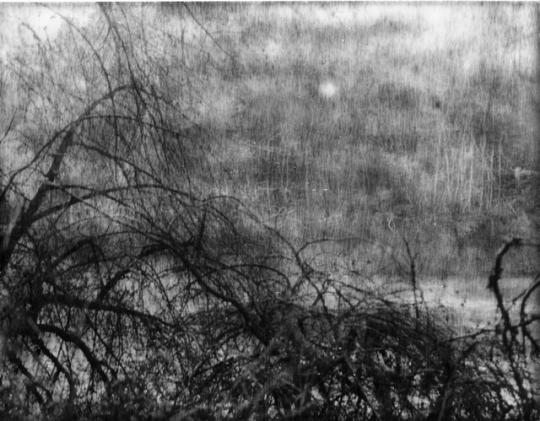
ruinaulta
Ester Vonplon
via Joerg Colberg
.....................................................
Ten years of Conscientious
Congratulations and thanks Joerg
_______________________
(....)
The letter dreams of the same
paper's rustling,
in which hearing distinguishes
the contours of a poet,
who dreams of Hasidim
burning out as a page of song
on the stones of the ocean,
reducing vowels to gesture.
The dream dreams a dream of consonants,
the page--
where black assumes
the limits of incision--
dreams of the borders of the letter, mica, light. (....)
Paper Dreams, for Jerome Rothenberg
Arkadii Dragomoshchenko
Translation from Russian by Genya Turovskaya
_______________________
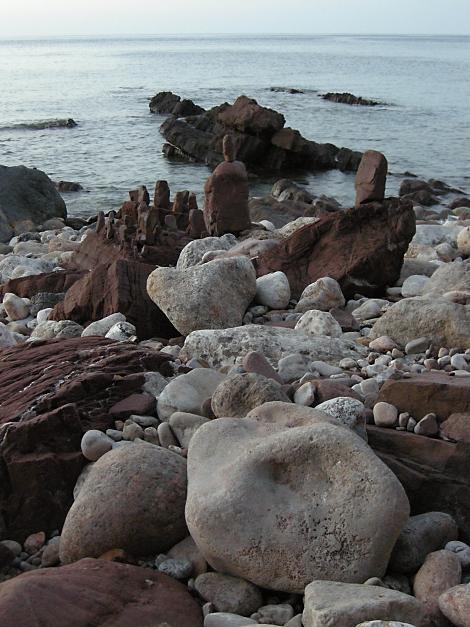
History
Studiolum
Poemas del rķo Wang
_______________________
Listen! you hear the grating roar
Of pebbles which the waves draw back, and fling,
At their return, up the high strand,
Begin, and cease, and then again begin,
With tremulous cadence slow, and bring
The eternal note of sadness in.
Sophocles long ago
Heard it on the Ęgęan, and it brought
Into his mind the turbid ebb and flow
Of human misery . . .
—Matthew Arnold, out of “Dover Beach” (1867)
.....................................................
Pebbles assembled by John Latta
1 2 .....................................................
The result of the thoughts’ operating on the data given to sense is to transform the order in which experience comes into an entirely different order, that of the conceived world. There is no spot of light, for example, which I pick out and proceed to define as a pebble, which is not thereby torn from its mere time- and space-neighbors, and thought in conjunction with things physically parted from it by the width of nature.
—William James, out of The Principles of Psychology (1890)
_______________________
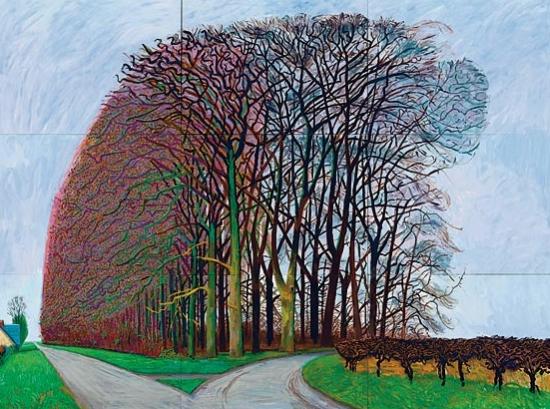
Woldgate Woods
David Hockney
b. July 9, 1937
_______________________
HINTERGLASMALEREI
Sean Rys
When the dance ends, everyone lies down & lets their hair out. I carry a fistful of smashed flowers, slip them between belt loops of these AM dawnwalkers. You're in the basement again, whispering names through the drywall. You claim the landmarks you've swallowed have made of you something mappable. Now the train asks us deeper still through its innards, the faraway music reduced to wing-noise of gadflies thumbed in a snuffbox. (....) Restlessness unvowels me. You stroke your javelina-tooth necklace while tiny brush birds lie down inside me like plastic explosives. I know your smile means you've fallen asleep inside your body. I know if I held my ear to your breastbone, I'd hear the pins in the gearbox miming their forced sweetness....(more)
Diagram :: 12.2
_______________________
Interview With David Harvey
Matt Mahon
(....)
I’ve put a lot of emphasis on the process of accumulation by dispossession, where things are taken away and commodified. We see a great deal of commodification of history, art objects and all the rest of it. People may create an urban neighbourhood that is extremely lively and then find suddenly that the developers start coming in and buying up houses and selling them at a premium because, well, isn’t it great to live in this lively neighbourhood that others have created? It’s an appropriation of the commons. I think that those acts of appropriation and accumulation by dispossession are widespread within the city.
A struggle against accumulation by dispossession should be as central to what a political movement is about as a struggle against appropriation of labour in production. That should be part and parcel of a much broader political struggle. The place where all that has to come together, where it does come together as a unity, is in city life. In the city we experience all those forms of exploitation and oppression, almost on a daily basis.
(....)
One of the problems I sense with the Occupy movement, having listened to many of them talk, is that they’re very wedded to certain organisational principles, in particular this notion of horizontality. They have a deep resistance to anything which is vertical, or hierarchical. There’s a deep resistance by a large proportion of them to any kind of idea of working with, or occupying, the state. I have problems with that.
Of course, it’s very easy to find yourself immediately called a Leninist, or something like that. And I say no, I’m not a Leninist, though I think actually Lenin had some pretty good ideas about some of this. I think we have to be more adaptable and not end up with what I call the fetishism of organisational form. I think we have a problem on the left on that question. ...(more)
“Not out of sentiment but relevance”: David Harvey’s Rebel Cities reviewed
by Tessa Morrison
_______________________
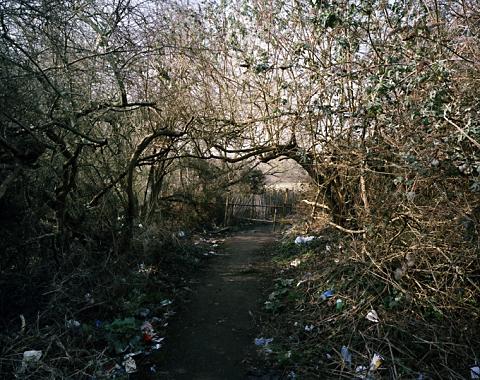
Peripheral
George Scane
George Scane Photography
via riley dog
_______________________
Light Night
James Schuyler
1
A tree, enamel needles,
owl takeoffs shake,
flapping a sound and smell
of underwing, like flags,
the clothy weight of flags.
A cone of silence stuck
with diamonds, the watch
she hunts, the frayed band
broke. It was a black night.
Dawn walked on it, the sun
set its heel. She won’t
find: a boundary of marsh,
the island in the wood.
2
Stoop, dove, horrid maid,
spread your chiffon on our
wood rot breeding the
Destroying Angel, white,
lathe-shapely, trout-lily
lovely. Taste, and have it.
3
In a rain-dusk dawn, the
clearing edge, the wood’s
fangs, the clear crystal
twist of a salival stream,
announce you hence. Tear
free of me, mountain, old
home bone, down sheer fear
tears mossed boulders
bound me, pool, deceptive,
trout-full, laugh and
chatter of finch and pecker,
gargle my liquor skin I
catch your face on. Scar
a look and leave. A rust
plush daycoach unfathers
me. A field of crosses. Let
iron clang iron.
James Schuylerat EPC, the Poetry Foundation and PennSound

Bruce Davidson
1 2 3 4 5
_______________________
A Schuyler of urgent concern
David Kaufmann
(....)
With any luck, this small collection of essays, appreciations, and poems will help bring Schuyler’s wiliness and particularity more sharply into focus. The writer who emerges here is a skilled stylist (but we should already have known that); a radical collagist; a grand celebrator of small failure; as much a meditative poet as a descriptive one; our finest watercolorist of mood and a version of Benjamin’s storyteller who “bathes us in a self-reflecting death, polite yet radical.” He remains, two decades on, of urgent concern....(more)
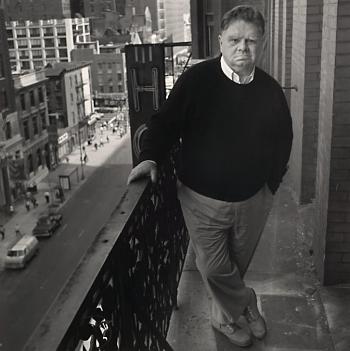
James Schuyler
1923 - 1991
The Edge in the Morning
(from The Cenotaph)
James Schuyler
3
Walking to the edge with a cup of coffee.
Sunup.
The sky is red.
Sunrise.
That way, the water is blinding.
That way, the water is dusted with sleep.
That way, the water shines as freshly as lead curling smoothly under a
knife.
The bay has a skin.
It swells it without breaking like water brimming in a glass.
On its skin and on mine the sun is warm.
The slipping air is thin and cold and cools the cup.
The coffee is cold.
Small fat gray brown birds in the grass bounce up from shadow to shadow.
The false oats are ripened and bearded straw.
The sun strikes them.
They light up.
The quaking grass has collapsed in wire heaps.
It is not what it was.
The edges of the bay are thinnest at high tide.
It is low tide.
The seaweed has pods of air that are like coffee beans.
Out of the silence an engine approaches.
There are tide lines in the cup.
In the brilliance the boat is a dark chunk, bluntly whittled.
It steadily comes nearer.
It throbs.
It moves across the light and turns white.
It pays out two lines that fan and roll and add their action to the surface
friction between air and water.
The bay is 1) a continuum and 2) change.
...(more)
James Schuyler at EPC, the Poetry Foundation and PennSound
_______________________

Bruce Davidson
_______________________
Vulture Gastronomy
Fred D'Aguiar
guernica
(....)
We pare our talons against the trunks
Of trees and keep our beaks sharp
By tearing off husk and bark
And marvel at our bloodless shirtfronts.
How long will it take before our dreams
Fill again with varieties of fallen bodies?
Before we circle in the air above a form
With our beady eyes and drop into its parachute
Of decay to begin the time of our lives?
...(more)
_______________________
Secularism: Its content and context
Akeel Bilgrami
(....)
If secularism has its relevance only in context, then it is natural and right to think that it will appear in different forms and guises in different contexts. But I write down these opening features of secularism at the outset because they seem to me to be invariant among the different forms that secularism may take in different contexts. It is hard to imagine that one hasn’t changed the subject from secularism to something else, something that deserves another name, if one finds oneself denying any of the features that I initially list below. Though I say this is ‘hard to imagine,’ I don’t mean to deny that there is a strong element of stipulation in these initial assertions to come. I can’t pretend that these are claims or theses about some independently identified subject matter—as if we all know perfectly well what we are talking about when we speak of secularism—and the question is only about what is true of that agreed upon concept or topic. The point is rather to fix the concept or topic. But, on the other hand, such talk of ‘fixing’ should not give the impression that it is a matter of free choice, either. Once the initial terminological points about ‘secularism’ are made, the goal of the rest of the paper will be to show why they are not arbitrary stipulations. So the reader is urged to be unreactive about these initial topic-setting assertions until the dialectic of the paper is played out....(more)
via The Immanent Frame
_______________________
A Guidebook of Alternative Nows
Amber Hickey- editor
Contributors
Alex Kemman (The Valreep Collective) , Annie Sprinkle and Beth Stephens , Artist Bailout Collective ,
Billy Mark , Cheyenna Weber (SolidarityNYC) , Antonio Scarponi (Conceptual Devices) ,
Critical Art Ensemble , Ethan Miller , Fallen Fruit (David Burns, Matias Viegener, and Austin Young) ,
Georg Hobmeier and Tommy Noonan , Howling Mob Society , Jeanne van Heeswijk , Jenny Cameron , Johannes Grenzfurthner (Monochrom) , Marc Herbst and Christina Ulke (Journal of Aesthetics & Protest Editorial Collective) , Justseeds Artists’ Cooperative , Ken Ehrlich and Kate Johnston , Llano Del Rio Collective , New Social Art School , Platform , Rori Knudtson (School of Critical Engagement) , Santiago Cirugeda (Recetas Urbanas) , Sasha Costanza-Chock , SPURSE , swearonourfriendship , T.J. Demos ,
Temporary Services , The Laboratory of Insurrectionary Imagination , Precarious Workers Brigade ,
The Vacuum Cleaner , The Yes Men , TradeSchool.coop , UrbanFarmers , Watts House Project .
Journal of Aesthetics & Protestissue 8, winter 2011
grassroots modernism
_______________________

Franz Kafka
b. July 3, 1883
image via
_______________________
Rudy Rucker Resurrects a Lost Classic of Psychedelia
Be Not Content: A Subterranean Journal, by William J. Craddock.
Originally published in 1970
Reviewed by Steve Silberman
(....)
Few certifiably clued-in alumni of that scene, it seems, were left with enough cognitive fortitude to compile the definitive tale of the tribe. Charles Perry's The Haight-Ashbury: A History is a dutifully researched, workmanlike account of events, but it lacks the bravado and flash that gave the era its lasting mythological dimension. Before ODing on a New York subway, Emmett Grogan, the swashbuckling founder of the Diggers -- the prototypical commune that kept the pilgrim hordes fed with dumpster-dive cuisine until the Mafia, speed, and busloads of free-love rubberneckers trampled down flower power for good -- wrote a memoir of the Haight called Ringolevio that had an appealing hip swagger, but never quite rose to the level of great art, as Allen Ginsberg's "Howl" and Jack Kerouac's On the Road had done for the previous Beat generation of seekers.
Now, however, another title has been added to the very short list of engaging books about the golden age of neuro-hacking, when a bunch of scruffy street kids laid claim to the most potent "mind-manifesting" molecules in history, and used them to storm the synaptic gates of Heaven. First published in 1970 and long out of print, moldering on a few select dusty bookshelves beside copies of A Separate Reality, Das Energi, and The Whole Earth Catalog, William Craddock's Be Not Content is now back as an ebook and limited-edition paperback, snatched out of the memory hole by Rudy Rucker, the computer scientist and mathematician who helped launch the cyberpunk genre of fiction with his Ware tetralogy and "transrealist" novels like White Light.
Ballsy, redemptively honest, astonishingly inventive, flawed, and ultimately heartbreaking, Be Not Content made a significant impact on the handful of freaks who read it, including Rucker himself, who writes on his website, "I quickly began to idolize Craddock. I had my own memories of the psychedelic revolution, and when reading Be Not Content I felt -- Yes. This is the way it was. This guy got it right." Rucker's act of digital resurrection also represents another appealing potential for the ebook format: the revival of obscure, obsolete titles by readers obsessed enough to secure the reprint rights....(more)
Download The Universe The Science Ebook Review
_______________________
Nine Poems from The Sienese Shredder #2
James Schuyler
Coming Night
It darkens brother
and your crutch tip grinds
the gravel the deer stepped delicately along
one breakfast, you were a kid.
Mother says after thirty
decades clip by
“and then you have the sum”
or spent it.
What was it like when the car
swerved on the ice,
what did you think of,
how long did you wait
in the wreck with the pain?
I see the sumacs by the turning space
turn their lank leaves,
the railway moves to us
and the willows below us
and think of you turning nineteen,
of the deer, the sumac, trains, a wreck.
...(more)
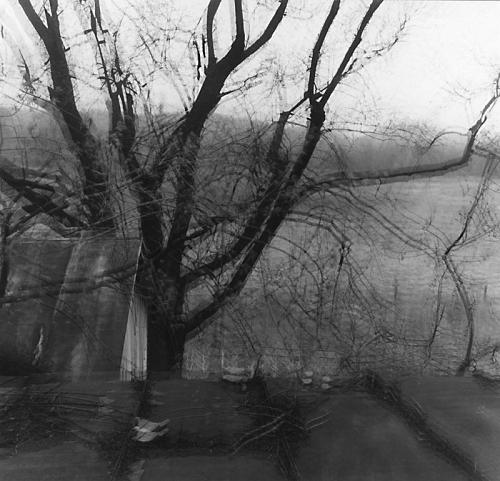
Ralph Eugene Meatyard
Peter Freeman Inc.
via gmtPlus9(-15)
_______________________
The places we have known do not belong only to the world of space on which we map them for our convenience. None of them was ever more than a thin slice, held between the contiguous impressions that composed our life at that time; the memory of a particular image is but regret for a particular moment; and houses, roads, avenues, are as fugitive, alas as the years.
- Marcel Proust
via James Luckett
_______________________
Words without Borders
July 2012: New Writing from Japan
Guest Editor Michael Emmerich
The Reality of Dreams: An Introduction
Michael Emmerich
(....)
The first thing I noticed when I arrived, as I hoisted my suitcase from the trunk, was that the bottom of the driveway was wet. It hadn’t rained, but the asphalt glistened black and a puddle had formed at its edge. This is how it’s been ever since the earthquake, I’m told. Somewhere nearby the land shifted and an underground stream flowed in to fill the cracks that appeared. The field out back looks the same as it always did—tomatoes, beans, cucumbers, a grove of bamboo swaying in the distance—but the water seeping up through the driveway tells us that underneath the surface it is not the same at all.
It is surreal, uncanny. The odd sense that everything around us is simultaneously familiar and strange, real and unreal, solid and fluid. The feeling that even as people go about their daily lives—texting friends on the subway, hanging out laundry, waiting for the elevator at work, comparing boxes of sushi in the supermarket—they are somehow swept up in larger, darker movements that take form deep in the earth, and whose traces only rarely become visible aboveground. It is as though there is a real world, where we live, and a world of eerie dreams, which is perhaps, unsettlingly, more real than what we believe to be real.
Collectively, the works of fiction in this special double issue of Words without Borders resonate with the weirdly contradictory mood, at once ordinary and extraordinary, that seems to hang over Japan today—though only one was written in the wake of the events of March 11, 2011. The eight pieces in the first issue have the texture of a dream, of the unstable, the fleeting, the fantastic; those in the second issue return us to a more familiar, if equally unsettled, world....(more)
_______________________
Renewing an Old Idea: Common Good
Dwight Garner on Tony Judt
Mr. Judt’s new book, “Ill Fares the Land,” is a slim and penetrating work, a dying man’s sense of a dying idea: the notion that the state can play a significant role in its citizens’ lives without imperiling their liberties. It makes sense that this book arrives now, not merely during the hideous endgame of the national health-care debate but during mud season; this book’s bleak assessment of the selfishness and materialism that have taken root in Western societies will stick to your feet and muddy your floors. But “Ill Fares the Land” is also optimistic, raw and patriotic in its sense of what countries like the United States and Britain have meant — and can continue to mean — to their people and to the world.
Chris LydonMnemosyne's Memes
"We cannot go on living like this," Judt wrote, and worse: "We simply do not know how to talk about these things any more."
Three main points stick out of the Judt diagnosis: (1) the enfeeblement of "social democracy" in the American Dream -- the slashing of taxes that enabled a distributed prosperity; (2) the old cult and social disease of private wealth which has infected the culture and the curriculum of the rising generation; and (3) the collapse of a reasonably inclusive and "ethically informed public conversation." Most people, he wrote "don't feel as though they are part of any conversation of significance."
Ill Fares the Land -- from Oliver Goldsmith's couplet: "Ill fares the land, to hastening ills a prey / Where wealth accumulates, and men decay" -- reads to me like the missing manual of the malaise in the land, a perfect outline for the Obama-Romney debates. On the chance that we won't hear these angles on the stump, we're taking Tony Judt's themes as a framework for conversations about the American condition in 2012 --
_______________________
FACSIMILE (again)
pt. II
Kyle Schlesinger
jacket2
(....)
Although it may seem paradoxical, it isn’t surprising that many of the theorists, publishers and poets making the most significant contributions to the future of the book (again, a term I use inclusively and not limited to the archetypal codex) are deeply committed to its history, to conceptualizing the parallel proliferation of analog and digital worlds. The digital world has a long way to go before it catches up with the analog world aesthetically, which may be a significant reason for the growing interest in the art of the book. Happily, the accessibility of tools to create quality facsimiles both online and in print has made it possible to put the most exemplary innovative works of literature from our relatively recent past back into circulation. Although entirely worthy of study, I’m the first to admit that descriptive bibliography is obsolete. Working closely with librarians and archivists at UVA, Drucker’s Artists’ Books Online set in place an important, revolutionary, framework for the future of bibliography. The ability to see, retrieve, print, document, and describe artists’ books that often exist in relative obscurity is nothing short of the Gutenberg Revolution all over again, only different. ...(more)
Facsimile Again pt. 1
_______________________
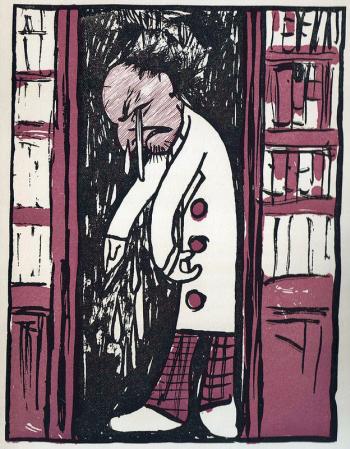
Jack of All Trades
Text by JJ Bell. Illustrations by C Robinson.
1900
BibliOdyssey
The Bookseller
Bookseller, Bookseller, why do you weep?
Because I must sell my books far too cheap.
Bookseller, Bookseller, why do you grin?
Because an old lady is just coming in.
Bookseller, Bookseller, why all this joy?
Because she requires a nice book for a boy.
Bookseller, Bookseller, why do you cough?
Ahem! Well, the discount forgot to come off.
Bookseller, Bookseller, why are you gay?
Beause it's my best of business to-day.
Bookseller, Bookseller, why are you mad?
Because the half-sovereign I changed her is bad.
_______________________
Your E-Book Is Reading You
Digital-book publishers and retailers now know more about their readers than ever before. How that's changing the experience of reading.
Alexandra Alter
,,, the shift to digital books has fueled an arms race among digital start-ups seeking to cash in on the massive pool of data collected by e-reading devices and reading apps. New e-reading services, which allow readers to purchase and store books in a digital library and read them on different devices, have some of the most sophisticated reader tracking software. The digital reading platform Copia, which has 50,000 subscribers, collects detailed demographic and reading data—including the age, gender and school affiliation of people who bought particular titles, as well as how many times the books were downloaded, opened and read—and shares its findings with publishers. Copia aggregates the data, so that individual users aren't identifiable, and shares that information with publishers that request it.
Kobo, which makes digital reading devices and operates an e-reading service that stocks 2.5 million books and has more than eight million users, has recently started looking at how readers as a whole engage with particular books and genres. The company tracks how many hours readers spend on particular titles and how far they get. Kobo recently found, for example, that most readers who started George R.R. Martin's fantasy novel "A Dance With Dragons" finished the book, and spent an average of 20 hours reading it, a relatively fast read for a 1,040-page novel....(more)
via Steve Himmer
_______________________
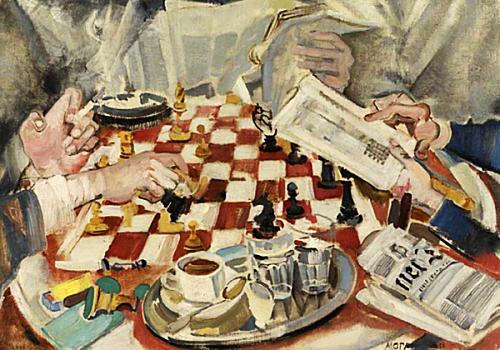
Max Oppenheimer
b. July 1, 1885
_______________________
Rock The Boat
Localized Ethics, the Situated Self, and Particularism
in Contemporary Art
Tere Vaden & Mika Hannula
pdf available at aaaaarg - free reg. req.
Ideas have to be modified - existentially - in the encounter. There may not be many answers, or many conclusions. The aim is to keep these two things, openness and locality, close to each other - within shouting distance, though we hope some whispers are heard, too - and at the same time maintain a temporary critical detachment so we do not get too entangled, too ensnared. It may not look stylish, this pulling together of reluctant bedfellows, but it has to be done.
Why openness and locality? Why make this conncction, this conjunction? With our background and interests, the combination seems evident, a challenge just waiting to be taken on, but there is also a somewhat deeper concern. For various reasons, it seems that the concept of locality - particularity, experiential nearness - has been given a bad name; it has suffered from closed or misleading interpretations. But there are always different versions of locality. Universal ideas arc one, local ideas always plural. There are many ways to articulate the realization that we are not universal spirits, forever hovering in the ether of information. The places we come from and the stories we tell of our adventures - past, present and future - construct our identity, be that collective, individual, or something in between.
If there is something that "globalisation", or the Derridean "mondialization", makes visible, easier to distinguish, then it is the local. Not only, not even mostly, as a harmonious entity, nor as a nostalgic hiding place, but as something without essence, without purity. Locality is the collision of stories, themes, thoughts and practices that make up our all-too-chaotic everyday existcnce.
|

